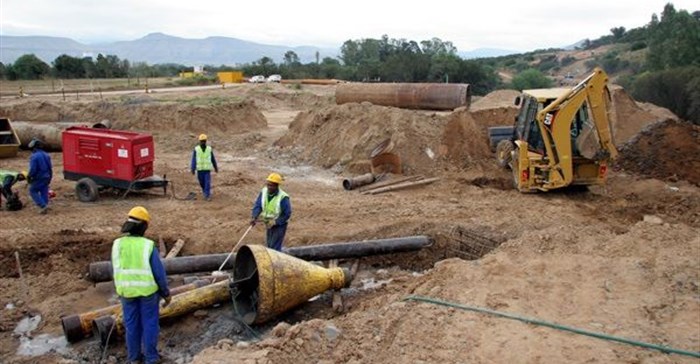
Subscribe & Follow
#AfricaMonth
Jobs
- Intern - Business Services Pretoria
- Engineer - Telecommunications Saudi Arabi
- Cost Control Engineer Dubai
- Repair Foreman Durban
- Health and Safety Officer George
In the news
Sanral offering bursary opportunities to study civil engineering

Charles Phadi is a qualified structural engineer with 13 years’ experience specialising in the design of road bridges. He is currently part of the team of experts working on the Polokwane Eastern Ring Road project managed by the South African National Roads Agency (Sanral).
His passion for engineering started from a young age when he used to drive around on the roads and wondered how certain structures were built. Since then he has never looked back.
What does it take to become a structural engineer?
It starts with passion and commitment because it’s a lot of work. To be able to design some of the best quality bridges that will marvel people and last for decades. You have to take pride in what you do because your work is not only about you, it’s out there for the whole world to see and use. So you must want to change the world and make a difference in people’s lives.
What do you do on a daily basis as a structural engineer?
I am currently working as an assistant resident engineer on one of the major construction projects in Polokwane by Sanral. I was responsible for the design of the bridges that are being built on the ring road. Once design is complete, part of my daily tasks is to perform quality control of all structures - about six bridges for this project. I inspect each one to see if the contractors are according to the correct specifications of the drawings. If I don’t approve, there won’t be progress.
Who qualifies to become an engineer and is there a place for such a profession in South Africa?
Anyone can become an engineer. The profession offers plenty of opportunities for both men and women to do amazing work. There is definitely a place in the industry, considering we are a developing country. Which means there’s a lot of opportunity to develop new and modern infrastructure. Not only for SA, but for the rest of Africa. It just takes a lot of hard work and focus.
What do you need to study to become a structural engineer?
At high school level, you need to study mathematics, physical science, English and geography because you work mostly with the environment and you need to learn about land and how the earth works. At university, you take subjects like surveying, geotechnology – to assist when you have to do foundations for structures, transportation, construction management and mechanics.
What’s your advice to those who want to study structural engineering?
It’s an exciting and rewarding profession to pursue. There is more than enough room and opportunity to grow. I do not doubt that, as a country, we have the necessary skills to compete with rest of the world, but there is still a big gap to fill. We need more engineers to take the baton further and change the world.
Sanral is affording potential students bursary opportunities to study civil engineering and other careers within the built environment. Click here for more information.











